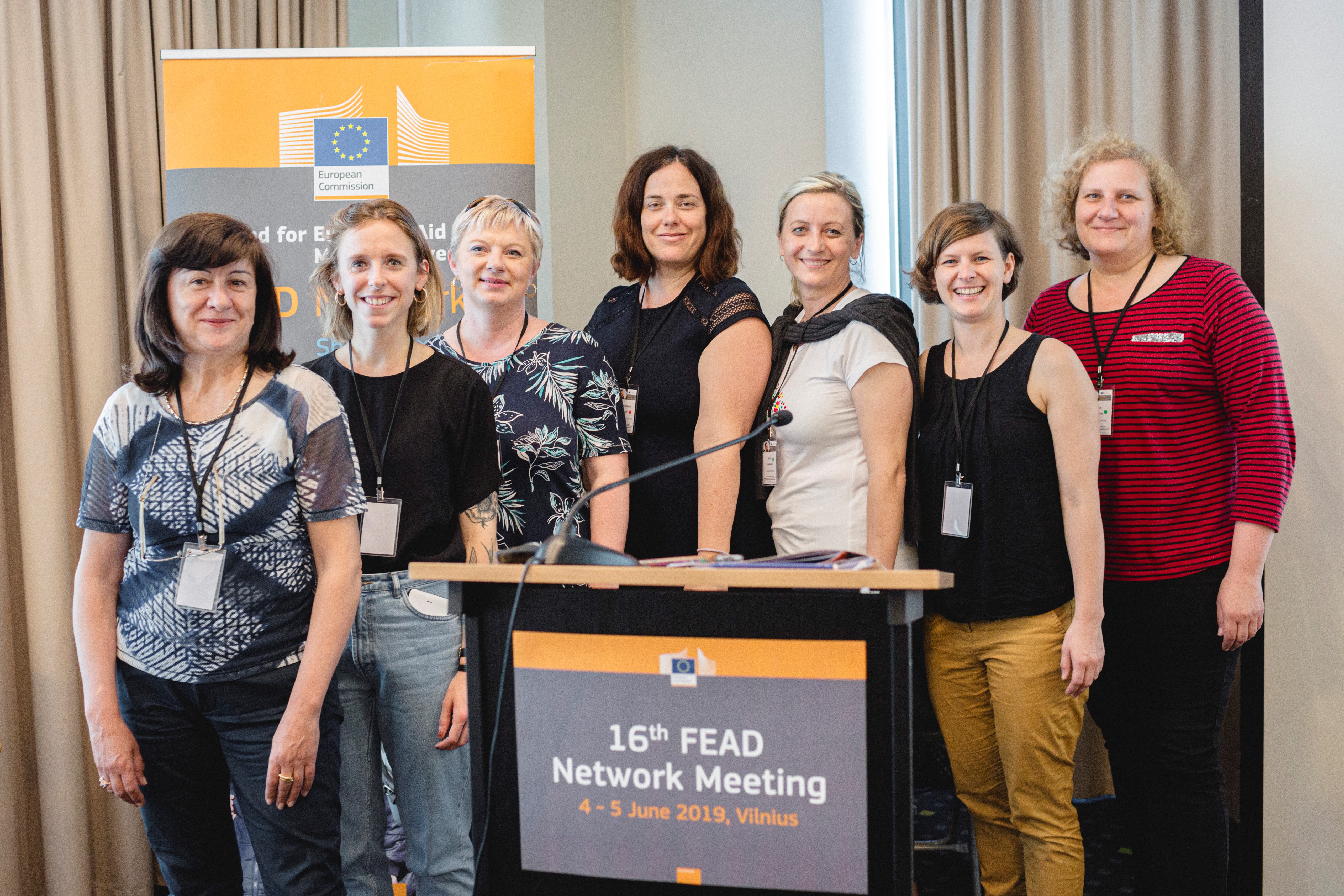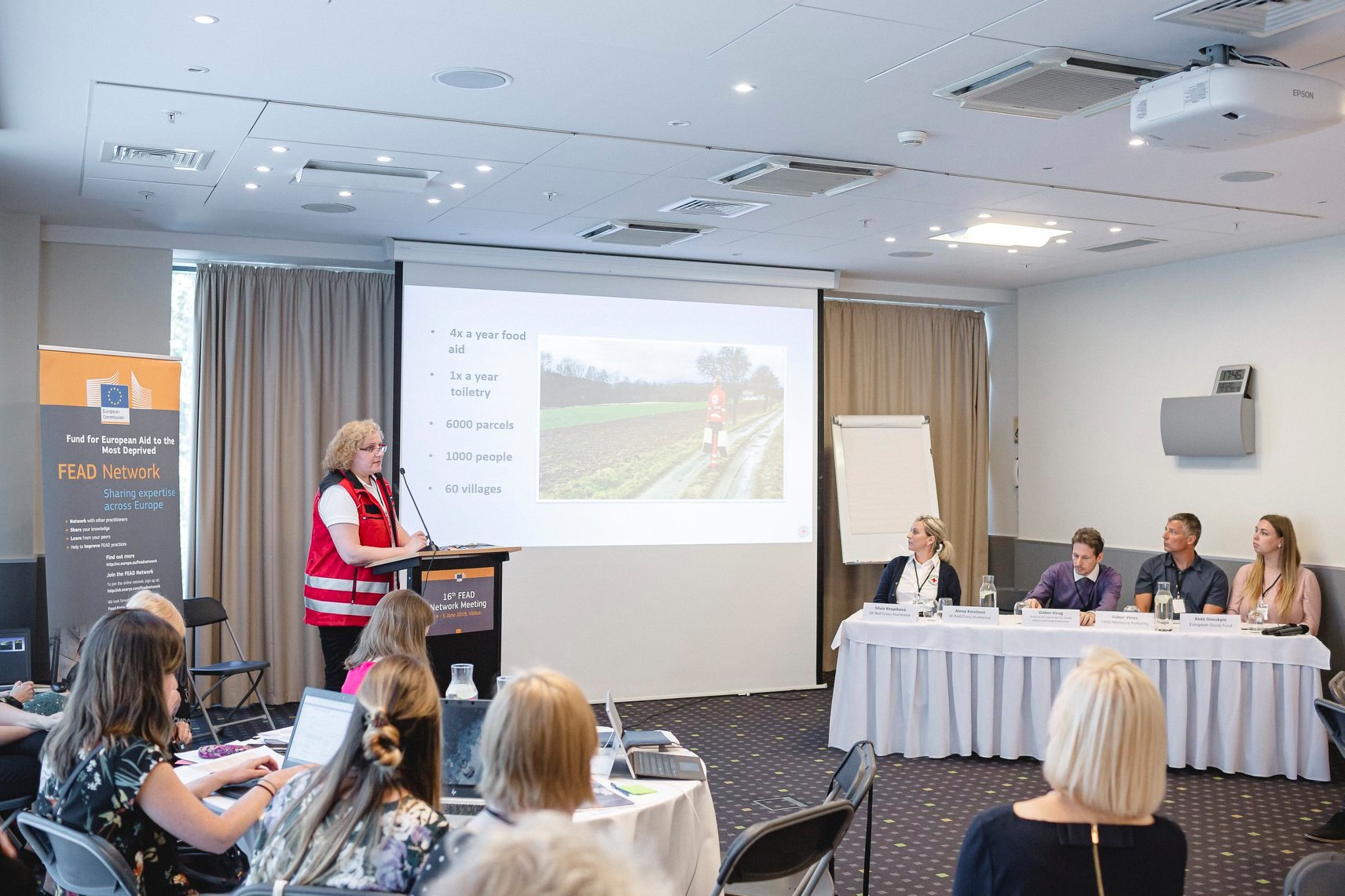Using FEAD to support vulnerable elderly people
On 4 and 5 June 2019, the meeting of the Fund for European Aid to the most Deprived (FEAD) network took place in Vilnius, Lithuania. The meeting aimed to discuss how to best support the most deprived older people, who are one of the main FEAD target groups.
In 2017, it was estimated that 18% of people above 65 in Europe were at risk of poverty and social exclusion. Older people face specific challenges, such as the inadequate indexation of pensions as well as social isolation and mobility issues. Older women are particularly likely to be poor, as their average pension is 40% lower than that of men. This is why older people are one of the main target groups of FEAD assistance: between 2014 and 2016, they represented 9% of the total number of recipients.
Ensuring FEAD reaches older people
How can we make sure that the assistance provided through FEAD reaches older people and is responsive to their needs? Which particular challenges do elderly people face today? What strategies and practices have been successful in this regard? These are just some of the topics addressed by the 90 delegates from FEAD implementing organisations, managing authorities and national ministries. Representatives from the Red Cross Societies of Bulgaria, Croatia, Hungary, Slovakia and Slovenian also contributed their experience to the meeting.
Red Cross action to assist older people in the community
An important part of the Red Cross’ social work is directed towards the elderly. From providing company in people’s homes to supporting family caregivers, European Red Cross Societies provide a wide range of support services aimed at looking after the health, wellbeing and social connections of older people and their families.
During the meeting, Alena Kniezova, Director of the Humenné branch of the Slovak Red Cross, presented how they use FEAD to support older people in the region. In addition to distributing food packages, the Slovak Red Cross provides additional targeted health services, such as medical transport, home care and the letting of medical equipment. Ms Kniezova highlighted the important role that FEAD plays in helping the Slovak Red Cross to keep in touch with this isolated group, but she also shared some of the challenges that the branch faces, such as a lack of volunteers to keep the work going in the Humenné region.

Other case studies and the field visits offered a glimpse into how FEAD can contribute to the addressing needs of older people who are most at risk of social exclusion. For instance, by delivering food packages to people’s homes rather than expecting them to come and collect them from distribution points, which may or may not be accessible for all. Going beyond material assistance, the Lithuanian civil society organisation (CSO) SOPA presented the project “Reserved for older people”. This project aims to support older people who would like to get back into the labour market through counselling, training and guidance searching for a job.

Decisions made over the coming years will be key to ensuring that EU programmes continue to help the most deprived older people in Europe. As national Ministries start to prepare the implementation of the future European Social Fund Plus (ESF+) – which will incorporate FEAD under the next Multiannual Financial Framework (MFF) 2021-2027 – ensuring that the specific needs of older people are taken into account in the organisation of material assistance will be critical to contributing to the social inclusion of the most vulnerable.
The Fund for European Aid to the Most Deprived is the EU programme dedicated to aid and support to the most vulnerable groups in society. The FEAD Network gathers civil society organisations, FEAD managing authorities, and other organisations involved in providing assistance to some of the most vulnerable people in Europe. Several National Red Cross Societies participate in the network and regularly contribute regularly their experience and expertise to the meetings.
For media inquiries, please contact Eva Oyón on: eva.oyon@redcross.eu or +32 2 235 09 22

